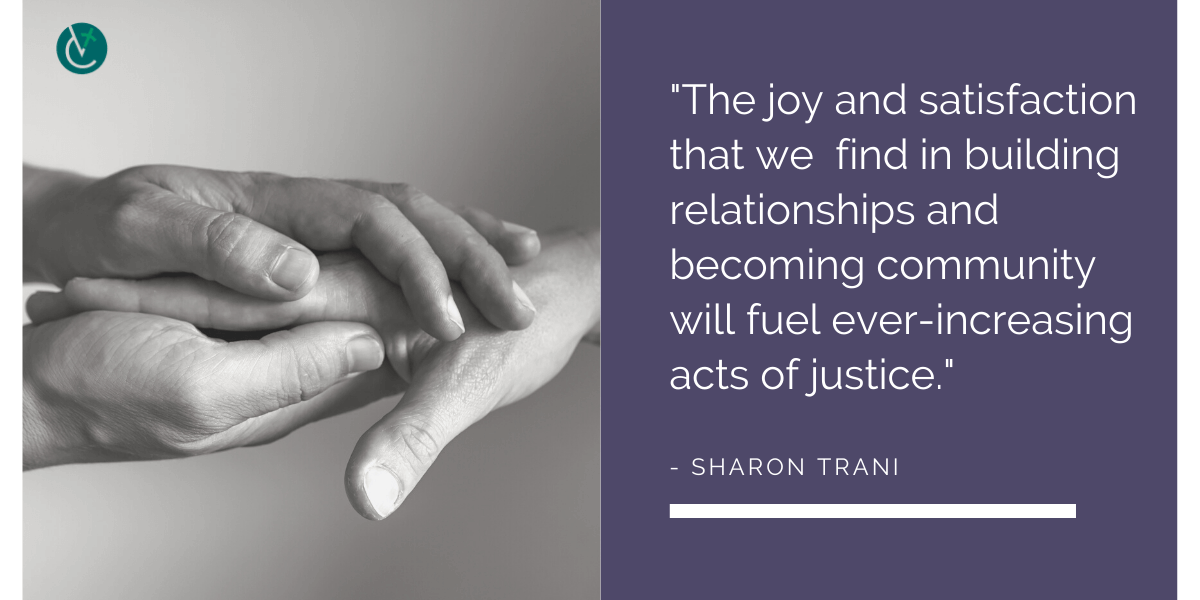
Social justice best served by ‘choosing to build strong and loving relationships’
“Social justice” is often considered to be physical acts of mercy, such as providing food and housing, promoting racial equality and making employment opportunity available. And indeed serving the most vulnerable among us is vital to living out our faith.
But Catholic social justice and teaching encompass much more.
Our Church has a rich treasure of wisdom and writings regarding social justice. There are three major principles of social justice that particularly relate to therapy and counseling work:
- Life and dignity of the person, often stated to be the foundation of all the principles of social teaching.
- The call to family, community and participation, seeking together the common good and wellbeing of all.
- Solidarity, pursuit of justice and peace, recognizing others as our brothers and sisters, building relationships.
I suggest that social justice is best served by choosing to build strong and loving relationships, first within our families and then spreading out locally and globally. We are made to be in union with God and one another; our very beings yearn for connection, to be known and loved and respected. Choosing to love ourselves and others, giving and forgiving, and forging deep, abiding relationships is the basis for a just society.
Recognizing the dignity of every person is integral to shaping how we perceive ourselves and those around us. We are all equal in our worth and value, regardless of ability, race, ethnicity, faith, age, struggles and viewpoints.
And then we choose to take care of relationships within our families, friendships and communities. We choose to see our own needs and desires and at the same time take care of the needs of others as best we can, especially considering the emotional and relational yearnings of ourselves, our spouses, children, friends and neighbors (next door and across the sea). We choose to make sacrifices in order to respect and connect with the other. We offer calming and peaceful words in order to understand and be understood. We recognize that authentic dialogue is more important than winning the fight. We look on the other with compassion. We make time for meaningful and safe conversation. We avoid name-calling, over-generalizations, negative filters and all-or-nothing thinking.
We all deserve fairness, reliability, loyalty and respect, and we owe these to others as well. When we make dialogue and connection a priority, the physical acts of justice and serving the poor become a natural outpouring toward those around us, whether that be our family, friends or neighbors. The joy and satisfaction that we find in building relationships and becoming community will fuel ever-increasing acts of justice.
—Sharon Trani, a nurse practitioner, is a marriage and family therapist with Vermont Catholic Charities Inc.
—Originally published in the Winter 2020 issue of Vermont Catholic magazine.

